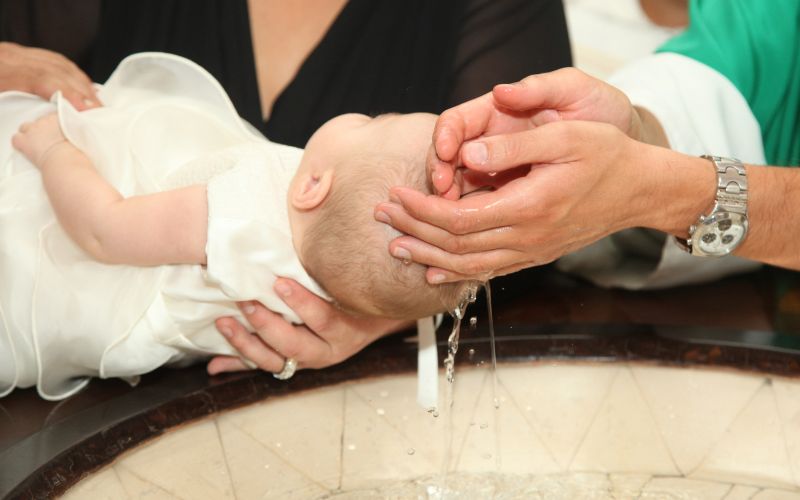Is it possible for multiple children to share the same godparent? This is a question that many parents ponder during the baptism planning process. While the tradition of appointing godparents is a cherished one, it carries various interpretations across cultures and families. Let’s explore whether siblings can have the same godparents and what it means for families today.
What is a Godparent?
A godparent is traditionally seen as a spiritual guide and mentor for a child. In religious contexts, like Catholicism, godparents play a significant role in the child’s spiritual upbringing.
They are there to support the child’s faith journey, offering guidance and wisdom. Beyond religion, godparents are often viewed as trusted adults who take a special interest in the child’s life, providing mentorship and support.
In many cultures, godparents carry symbolic importance. They are often chosen for their moral character, shared values, and close relationship with the child’s family. This role can vary widely, from being involved in religious ceremonies to serving as a confidant and advisor as the child grows.
Can Multiple People Have the Same Godparent?
Yes, multiple children can certainly share the same godparent. This practice is common in many families and cultures. Choosing the same godparent for siblings might be based on the godparent’s deep connection with the family or their proven ability to fulfill the role effectively.
Different families approach this practice in varied ways. For some, it’s about consistency in values and guidance. For others, it might be a practical decision due to a limited pool of suitable candidates. Regardless, the decision often reflects the family’s values and cultural traditions.
Benefits of Having the Same Godparents for Siblings
Consistency in Values and Guidance
When siblings share the same godparents, there’s a uniformity in the values and guidance received. This consistency can foster a shared understanding of family traditions and beliefs, providing a solid foundation for the children’s upbringing. Godparents who are involved with all siblings can offer a cohesive support system.
Strengthened Family Bonds
Having the same godparents can strengthen familial connections. It creates a shared experience among siblings, potentially reducing feelings of favoritism or competition. A godparent who is involved with the entire family can help foster a unified sense of belonging and support.
Simplified Relationships for Parents
Appointing the same godparents for multiple children can simplify relationships for the parents. Managing multiple sets of godparents can be complex, particularly when coordinating family events or religious ceremonies. A single set of godparents streamlines communication and involvement.
Reasons for Choosing Different Godparents for Each Child
Special Bonds with Each Child
Choosing different godparents for each child allows for the development of unique, individual relationships. Each child can have a special bond with their godparent, creating a one-on-one mentorship dynamic that caters to their specific needs and personality.
Broadening the Circle of Influence
Having different godparents for each child broadens the circle of influence. It introduces children to a diverse range of mentors, each bringing their experiences and perspectives. This diversity can enrich the children’s upbringing, offering them various life lessons.
Sharing Responsibilities
Different godparents mean spreading the responsibilities among a wider group. This can alleviate the burden on any single godparent, allowing each to focus on offering quality guidance and support. It also allows multiple family friends or relatives to play an active role in the children’s lives.
Factors to Consider When Choosing Godparents
Personal Choice
Choosing godparents is a deeply personal decision. It’s important to consider the individual’s personality, values, and relationship with your family. A godparent should be someone you trust to have a positive impact on your child’s life.
Cultural and Religious Practices
Cultural and religious traditions often influence the choice of godparents. Some religions have specific requirements or preferences, such as the need for a godparent to be of the same faith. Understanding these criteria can guide your decision.
Legal and Practical Considerations
In some cases, godparents may also be considered for legal guardianship. It’s essential to discuss this possibility and include it in your will if you intend for the godparents to take on this role. Practical considerations like proximity and availability are also important.
Conclusion
Choosing godparents is a significant decision that reflects your family’s values, traditions, and expectations. Whether you opt for the same godparents for all your children or different ones for each, the most important factor is selecting individuals who will positively influence your children’s lives.
Consider your family’s unique dynamics and cultural traditions when making this decision. Share your experiences and thoughts in the comments section or reach out to others who have navigated this choice. The role of a godparent is a lifelong commitment, and it’s worth taking the time to make a thoughtful decision.
FAQs
Can you be a godparent to multiple people?
Yes, a person can be a godparent to multiple children, even within the same family. The key is their ability to fulfill the responsibilities and maintain meaningful relationships with each godchild.
Can two children have the same godparents?
Certainly, siblings can share the same godparents. It’s a matter of personal choice and family tradition. Many families find this arrangement beneficial for consistency and simplicity.
What are the rules for godparents?
Rules for godparents can vary depending on religious and cultural customs. Generally, a godparent should be someone who can provide spiritual and personal guidance to the child. They may also need to meet specific religious criteria, such as being baptized.
Can you have two sets of godparents in the Catholic Church?
The Catholic Church typically allows for one pair of godparents, but some families choose to have additional honorary godparents. It’s best to consult with your parish to understand local practices.


















